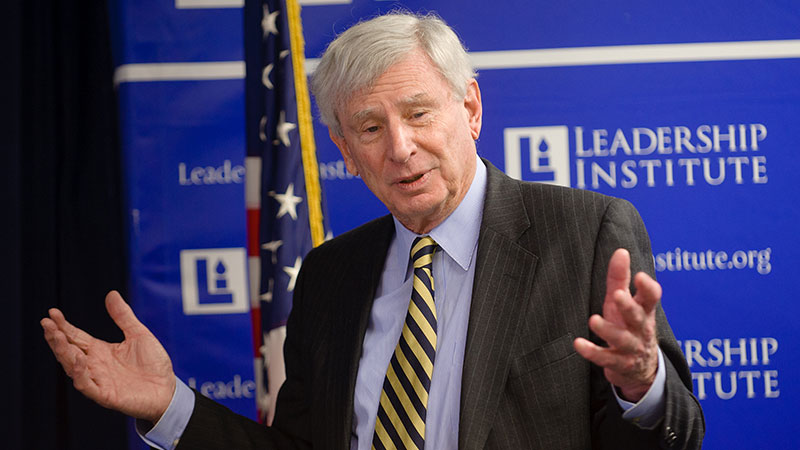
Donald Devine Seminars
Dr. Donald Devine is a columnist, author and a senior scholar at The Fund for American Studies. Devine served as President Ronald Reagan’s civil service director during the president’s first term in office. During that time, The Washington Post labeled him Reagan’s “terrible swift sword of the civil service” for cutting bureaucrats and reducing billions in spending. Today, Devine travels the country teaching Constitutional Leadership Seminars to young people and speaking to groups about reviving the Constitution and saving the marriage between libertarianism and traditionalism.
Devine spells out the solution for the modern GOP – a fusion of the best of conservative ideas with those of the liberty movement, all rooted in the Constitution.” – Senator Rand Paul
About Dr. Donald Devine
Before and after his government service, Devine was an academic who taught for 14 years as an associate professor of government and politics at the University of Maryland and for a decade as a professor of Western civilization at Bellevue University. He is a columnist and author of 11 books, including his most recent “Ronald Reagan’s Enduring Principles: How They Can Promote Political Success Today.” Devine served as an advisor to Reagan from 1976 to 1985, to Sen. Bob Dole from 1988–1996 and to Steve Forbes between 1998–2000.
Book Dr. Devine
If you’re interested in scheduling Dr. Donald Devine to speak at your event, please contact Jane Mack at jmack@TFAS.org. For media inquiries, please contact Kristin Underwood at info@TFAS.org or 202.986.0384.


